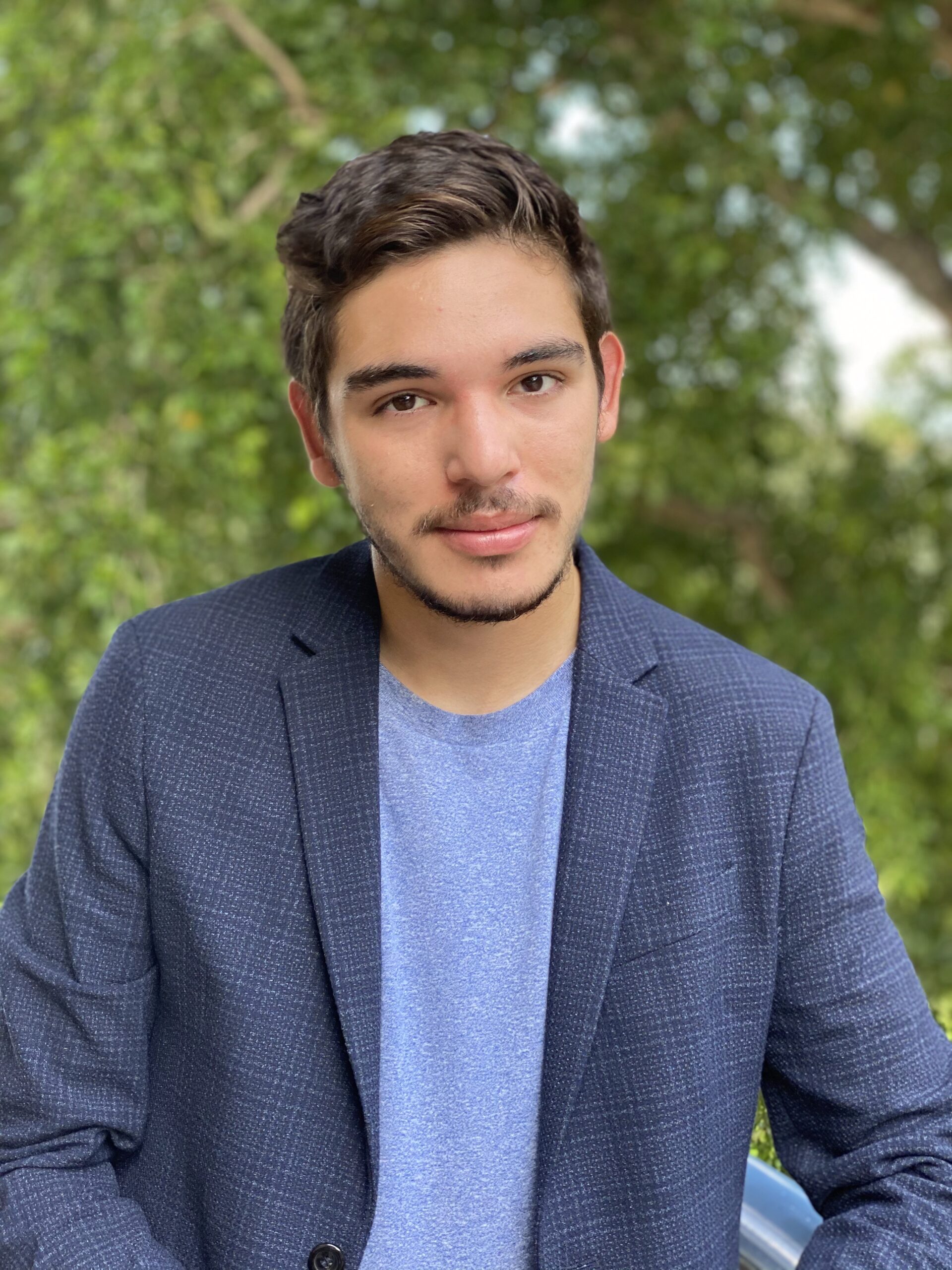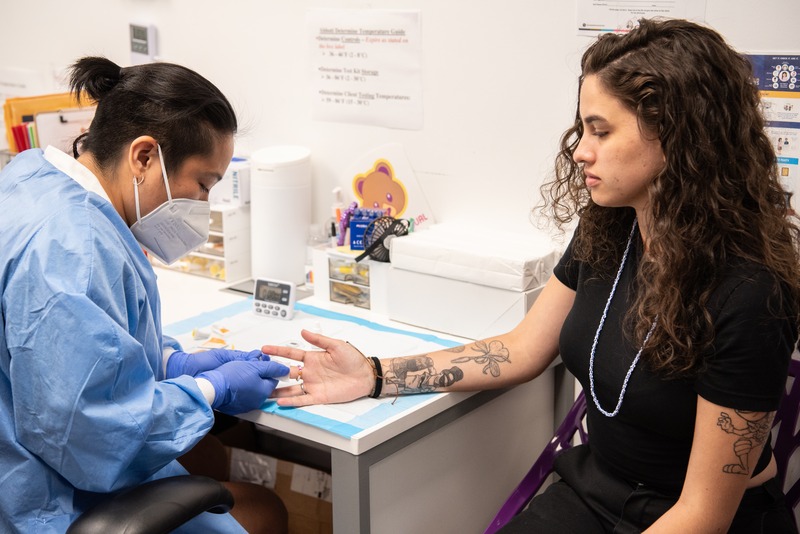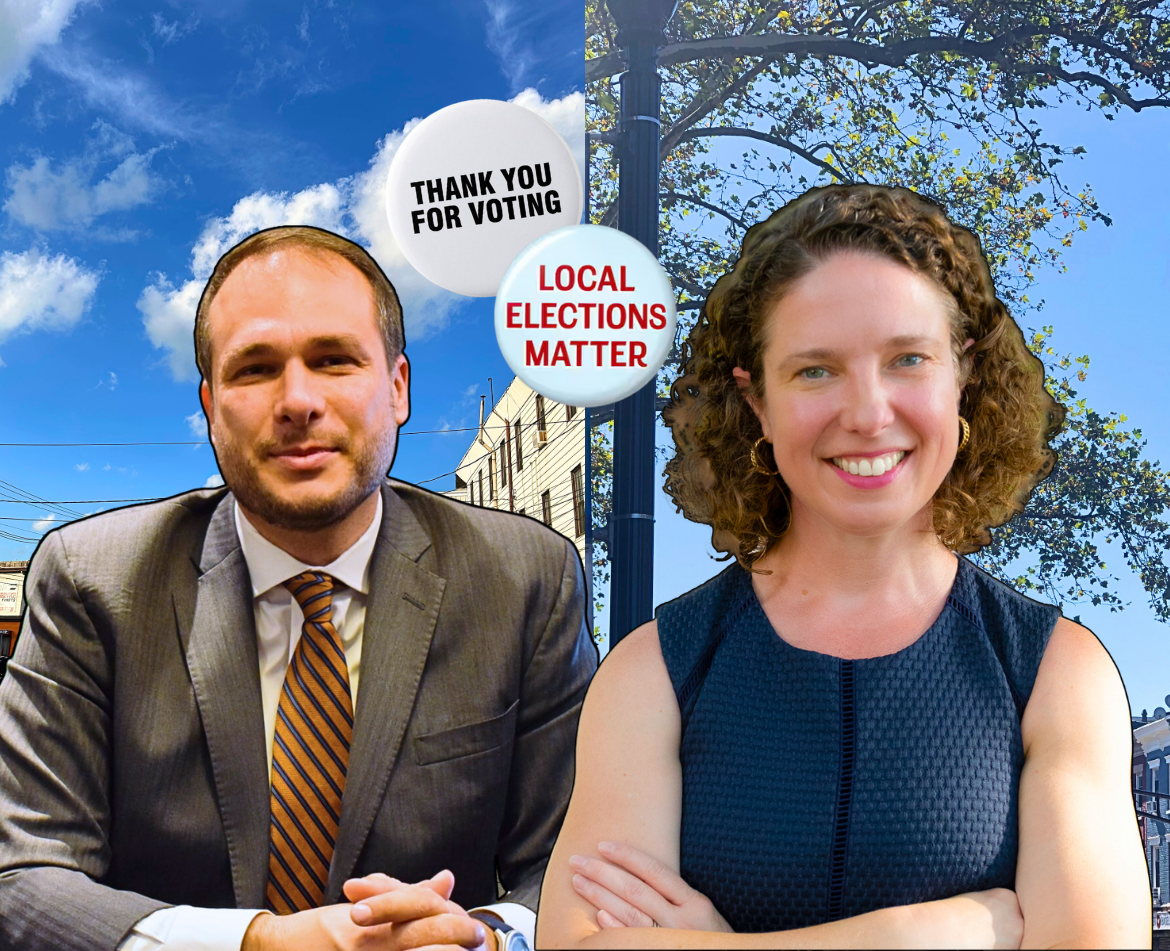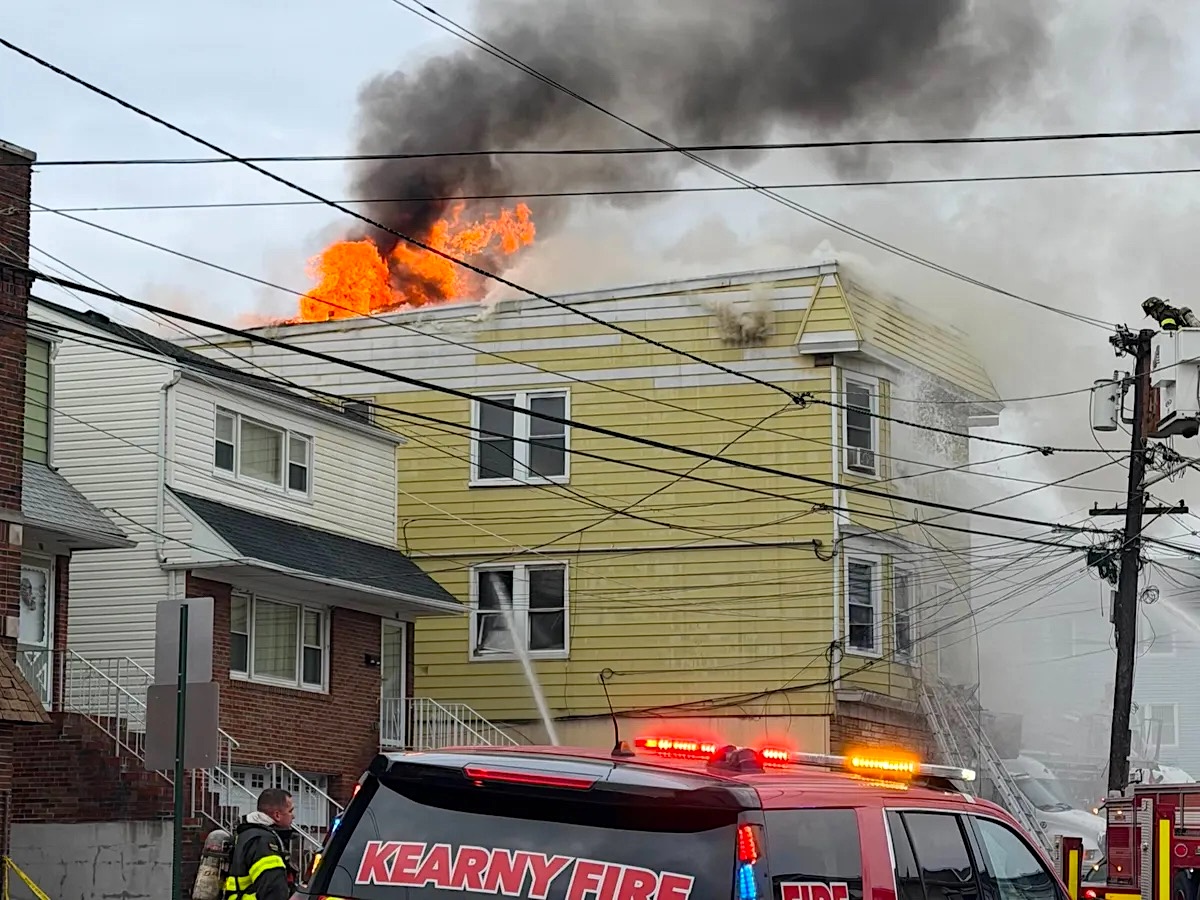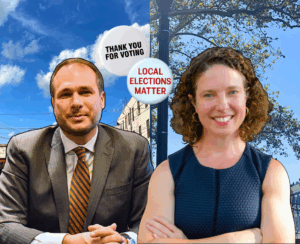HIV Testing Coordinator performs an HIV test on Client Services Navigator Karla Oliva at the Hudson Pride Center in Jersey City. (Photo courtesy of Reena Rose Sibayan / The Jersey Journal.)
Last week, many Hudson County nonprofits’ phone lines were ringing, on the other side was an undocumented immigrant asking “What would happen to the social services” they relied on?
“Everyone keeps saying that President Trump can not be doing this, but he is doing it,” said Waterfront Project Executive Director Carol Sainthilaire last week. The Waterfront Project is a nonprofit organization that helps alleviate low-income communities by providing life-care essential services such as legal and financial aid, among many other resources.
“This federal action jeopardizes the free, life-saving programs we offer to keep families housed, financially stable, and connected to the resources they need to survive,” read one post on social media by the organization.

The order was expected to go into effect at 5 p.m. on Tuesday, Jan. 28, but a U.S. District judge blocked the funding freeze minutes before the order was to take place, impacting potentially over 44,000 nonprofits across New Jersey, according to a data set put together by ProPublica indicates active organizations under tax-exempt status.
A second judge in the District of Columbia also followed suit, with a temporary restraining order blocking the presidential executive order to freeze all agency grants and loans.
More than 1.9 million nonprofits make up the U.S. nonprofit sector, with around 10% of them receiving more than half of their funding from the state, local or federal powers, according to the nonprofit data organization Candid.
For Sainthilaire, items such as meeting payroll for her entire staff seemed to be up in the air–as many of those grants are under the federal category of funds directed to the nonprofit.
“We rely on this federal funding to deliver all of these essential services, so this pause basically disrupts everything!” she said, referring to the Trump executive order requiring the pause of all federal grants and loans in the U.S. and not sure how she’ll be able to pay her staff, which solely rely on these funds.
The executive order lasted only two days and has since been rescinded back to the White House Office of Management and Budget (OBM), which is where the memo announcing the pause in trillions of dollars of federal grants and loans came from.
Amidst the back and forth of allocation funds from the federal government to state and local powers, Matt Platkin, the New Jersey State Attorney General, sued the Trump administration over the potential freeze of trillions in federal funding.
“We’re talking about ignoring the entirety of the United States Constitution, throwing duly enacted statutes out the window, simply because the President of this country doesn’t like it,” said Platkin at a press conference last week related to the matter. “That’s not permissible under our legal system.”
The National Council of Nonprofits, American Public Health Association, Main Street Alliance and SAGE sued the OMB and its acting director, Matthew Vaeth, in U.S. District Court for the District of Columbia, amidst Trump’s executive order.

Slice of Culture spoke to several nonprofit organizations across Hudson County who said they were confused and worried as to the outcome of these federal orders, given the tit-for-tat with the Trump administration over the past week. These orders could have affected the services they provide to the community; some residents depend on their aid as a lifeline.
“In NJ a pause impacts the gateway tunnel, NJ transit funding, and countless agencies that support our neighbors,” said 2nd Ward Councilwoman Tiffanie Fisher of Hoboken.
Previous executive orders, released in Trump’s first week in office, revolve around ending federal programs, such as ending diversity, equity and inclusion programs that the government considers “radical and wasteful,” and making the government more tuned to being as efficient, as the Trump administration claims it to be.
These past few days have been described to Slice of Culture as “organized chaos” in Hudson County pertaining to the potential halt of trillions of dollars by the federal government to local levels. At the time of this writing, it makes it to the White House for further review, under the rescinded measure to review the order.
Hudson County has a population size of about 712,000, within those 148,096 are non-citizens, according to the city’s latest census data going back to 2022.
“Over the past several days our offices have been inundated with calls from residents and providers worried about the President’s pause on federal grants,” said Craig Guy, the Hudson County Executive, in a statement provided to Slice of Culture.
“I’ve spoken with members of our delegation and while I was pleased to see the courts put a hold on the order, make no mistake, this funding freeze would greatly hurt Hudson County’s most vulnerable communities. Healthcare, social services, public safety–all these programs are on the chopping block with this draconian measure,” he added in his statement through email.
How Hudson County Is Pushing Forward
If another attempt to freeze federal funds came from federal powers, the county told Slice of Culture in a scenario that the following grants would be in jeopardy:
- Continuum of Care and Emergency Solutions Grant, Community Development Block Grant (CDBG)
- Ryan White Grant (RWG)
- Comprehensive Opioid
- Stimulant and Substance Use Program (COSSUP)
- STOP School Violence Mental Health Program and Gus Schumacher Nutrition Incentive Program (GusNIP)
In an interview last week with Mark Cygan, a spokesperson for Hudson County, the topic of research grants, public housing grants and education base grants were discussed:
“When I get off the phone, there might be a change in policy,” referring to the recent pause in federal grants and loan programs–the two-page memo as of now has been rescinded back to the White House, according to national outlets. “This is a day-to-day situation, We are in frequent contact with our federal delegation who provide us with constant updates on these issues,” added Cygan.
The Hudson Pride Center, like many other care facilities in Hudson County, offers free healthcare and social safety net services directly funneled through by the state, which in turn receives funding from the federal government.
“Like thousands of other community service organizations around the country, we are awaiting further clarity,” said Elizabeth Schedl, the president of Hudson County Pride Center. “Many of the communities we serve are now under siege and regardless of the outcome, we will not stop fighting for the people we represent.”
Many nonprofits across Hudson County are at an inflection point under the Trump administration, particularly when it comes the ensuring social safety nets and benefits provided to undocumented immigrants.
“None of us want to be remembered or thought about only based on our most challenging moment or our worst day,” said Priscilla Monica, the executive director for the New Jersey Consortium for Immigrant Children, a state-wide network of legal services and policy advocacy for young immigrants navigating the system.
She told Slice of Culture that the organization had managed to put together a virtual presentation on Jan. 25, with over 660 registered nonprofits throughout the state, preparing staff members in the scenario that ICE agents were to arrive at the workplace.
She added, that the discussion showed staff members how to make distinctions when it comes to reading out a warrant issued by a judge, rather than a fabricated court order.
“They have learned to identify the difference and understanding what that means in practice,” she added referring to counter measures against ICE enforcement in the long run.
Resources as to how to prepare your nonprofit or organization for potential ICE Enforcement workplace visits, resources and guidelines are provided in the following link here. The resources are provided by the New Jersey Consortium for Immigrant Children, in collaboration with the Rutgers Law School Child Advocacy Clinic, Make the Road NJ and Legal Services of NJ.
A link here is for the virtual presentation titled “Briefing on Immigrant Rights Preparedness for Nonprofit Organizations & Social Service Providers” by the New Jersey Consortium for Immigrant Children.

